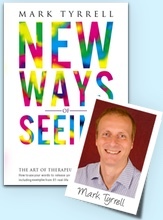
Couples who have drifted apart can be brought back together
“If ever there is a tomorrow when we’re not together… there is something you must always remember. You are braver than you believe, stronger than you seem, and smarter than you think. But the most important thing is, even if we’re apart… I’ll always be with you.”
– A.A. Milne, Winnie the Pooh
Bliss, that’s what relationships can be.
A delicate yet steel-strong interlacing of mutual love. A sunny glade of shared understanding, respect, desire and consideration, warming you both as you traverse the frosty forests of life.
But what can be a heaven can also be a hell. Or a place in between, a lifeless limbo.
Here I’m not talking about accidentally finding yourself in a sociopath’s nest, although many people have at some time fallen prey to attractive abusers or initially charming bullies.
Nor am I speaking of the “What was I thinking? We were always so different!” kind of misguided entanglements. Some relationships are just never going to work. Roses don’t grow from concrete.
What I’m talking about are the good but untended relationships that rot from within.
Some of your clients will be in the kind of relationships that can be saved, made whole again. That’s where you come in.
What’s wrong?
That’s right, what’s wrong? Sounds obvious, but relationships go bad for all kinds of reasons. Do they fight more than two politicians from opposing parties? Have they lost their intimacy and forgotten where they put it? Do they take one another so for granted that they’ve all but disappeared from one another’s daily jaded vision?
But if your investigations reveal that the relationship has a genuinely sound basis but seems to be disintegrating from lack of care and attention, here’s what I suggest.
1) Tip One – Focus on what they love and like about their partner
When partners in a relationship start to feel that “Whatever I do is wrong”, or that “I just can’t win!”, they stop making an effort.
How we ‘filter’ the actions of our partners is so important. Some people can come to see even good actions from their partner as ‘just one good deed’ from an otherwise bad person – the exception that proves the rule. This development is particularly harmful, because if partners find that even when they really are making an effort, nothing changes, then they stop trying.
If you suspect that your client has started to view their partner through an exclusively negative bias, set them a task of spending five minutes every day thinking about their partner’s good qualities. Get your clients to compliment one another.
So many clients say to me, “Yeah, well, she knows I think she’s wonderful” but they never, ever say it to her (or him, as the case may be). Get them to say it.
2) Tip Two – Encourage intimacy through shared laughter
Really? That’s my second tip?
Okay, I’ll back that up. Psychologist Doris G. Bazzini at Appalachian State University found that couples who laugh together and intentionally reminisce together over funny shared times are more likely to be satisfied with their relationship than those who don’t.(1)
Bazzini’s team studied 52 couples and found that couples who recalled times they had laughed together immediately reported an increased satisfaction in their relationship.
Encourage your client to think about funny times with their partner, to reminisce.
If you are seeing them together, then get them to talk about fun pastimes and set them, as homework, regular reminiscing time. If you know how to use hypnosis, you can re-evoke humour even more powerfully for them.
‘Couple therapy’ can often feel rather painful and heavy, but sometimes the missing ingredient is lightness! Especially if a couple has been struggling laboriously to ‘work through their issues’. Too much agonizing and ruminating and analysing can actually rot a relationship further.
3) Tip Three – Remember the 5 to 1 rule
Relationship psychologist John Gottman found that for a relationship to be stable and successful you need to have 5 ‘good interactions’ – laughter, pleasant conversation, enjoyable walk together in nature, great sex, a favour offered, and so on – for every one ‘not so good interaction’ – such as an argument.(2)
Explain the 5 to 1 rule to your client (and their partner if you work with couples) and ask them to really focus on this.
Being mindful of the 5 to 1 rule also takes the pressure off people to have a ‘perfect relationship’. And assigning clients the ‘task’ of pursuing healthy pleasure together gives your clients a practical and effective strategy to improve their relationships.
But let’s get a bit more loving …
4) Tip Four: Remember romance?
Routine, boredom, bills, chores – even the best relationships can become as romantic as a late tax return.
Help your clients revivify the early days of their romance, have them reminisce about the early love and passion they felt for each other, and live through it again in memory.
I’m not a fan of the term ‘date night’ – it makes me think of horror movie titles, you know the sort of thing… ‘Datenight 2 – This time it’s personal!‘. But I do think that romance is important. And I think the heart of romance is surprise – good surprises (not jumping out screaming from behind a door when your partner thought they were home alone).
Good surprises might include things like a note proclaiming love and appreciation hidden in a packed lunch, a bunch of flowers, an unexpected dinner date.
We might call this ‘re-wooing’ and there’s an art to it you can teach your clients.
Sex.
Okay, now I have your attention, let’s look at Tip 5.
5) Tip Five – Bring back physical and emotional intimacy
Maybe lovemaking has become scarce. One man I worked with told me he felt like a ‘born again virgin’. And his partner, in turn, said she had ‘forgotten how to do it!’ We could have been discussing wind surfing!
But tread carefully.
Different couples quite naturally have differing levels of sexual passion and activity. For some, once a day feels right and natural and for others once a week or even less is perfectly fine.
Suddenly expecting, hoping, or demanding that your therapy couple leap back into bed with the explosive frantic disrobing of a Hollywood movie may be pushing it… at first.
You might encourage your clients to take it step by step. They may need time to just hold one another again, to kiss, to just spend time together in physical closeness without the pressure to have to have sex.
Once lovemaking resumes it should feel like a natural progression of increasing physical closeness. I have set just hugging and kissing gently as ‘homework’, and suggested ‘no actual sex’ for ‘a while’.
It’s amazing how many couples ‘fail’ at the no sex part, I’m glad to say.
I think people are sometimes too ready to toss aside perfectly good relationships because they have been led to believe that they ‘shouldn’t have to’ make efforts. But some people are naturally great at relationships and the rest of us can learn to be better, and you really can help your clients to be as happy as they once were in their relationship, or maybe even happier than ever before.
Notes:
- Bazzini’s study, which appeared in the January 2007 issue of the journal Motivation and Emotion, quotes her as saying: “There are several benefits from reminiscing about laughter. First, it induces laughter, and laughter has a positive affective component, because laughter has been shown to lower blood pressure, and it triggers the release of endorphins, which results in a sense of well-being. But you also reap this cognitive benefit which colors your judgment of the relationship and validates the self at the same time. I doubt that couples realize why it’s so reinforcing. It says this is something special between us and creates a bond and cohesiveness in the relationship.”
- See Marriage Math










